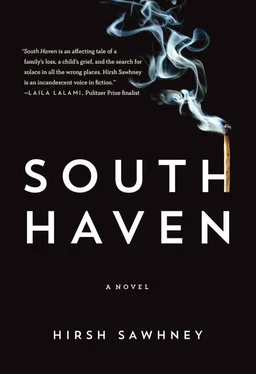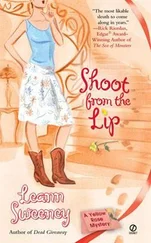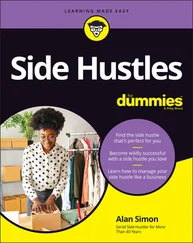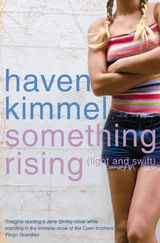The absolute low point of Arjun’s trip was when he found some of Siddharth’s X-rated pictures at the back of their bedroom closet. He started yelling about how these images were disgusting and not even realistic. Siddharth confessed that he’d gotten them from Marc, and Arjun launched into a lecture about Marc seeming too precocious and being a bad influence. “By the way, isn’t he the son of your psychologist?”
“She’s not my psychologist,” said Siddharth.
“Whatever,” said Arjun. “It’s a little weird if you ask me — kind of unethical or something.”
* * *
Thanks to the snow flurries, Mohan Lal’s slow pace, and some bad directions, they didn’t make it to the municipal gymnasium in Springfield until three minutes after their designated registration time. Marc was shaking his head and muttering to himself as they scurried through the parking lot, which confirmed Siddharth’s prediction that having his father there was a bad idea.
Inside, an overweight woman with gigantic glasses insisted that registration was closed. Siddharth felt an unexpected surge of relief. Maybe they could all just get lunch and head home. Ms. Farber, however, wouldn’t take no for an answer. She bent toward the woman and whispered something in her ear, and the woman eventually agreed to make an exception.
Mohan Lal looked on, smiling. Later, he asked, “What did you tell her, Rachel?”
“Top secret,” said Ms. Farber, winking at him.
“Rachel, you should forget about psychology and go for politics.”
“Oh, I’m fine where I am,” she said. Her voice was harsh, but her whole face seemed to be smiling, not just her lips.
Siddharth’s forms exhibition was held in a large classroom that had been emptied of its desks and chairs and lined with thin gray matting. Upon seeing the other kids, who looked bigger, stronger, and more American, he bit down on the inside of his cheek and wished he hadn’t come. A dozen parents watched as he began making synchronized movements with five other children. He made a huge mistake within the first two minutes, kicking when he was supposed to block during Form IV, which threw the kid in front of him off balance. Siddharth thought he saw a stranger in a baseball cap snicker and shake his head, which made him even more nervous. He made numerous little mistakes for the remainder of his twenty-minute performance. In the end, he got a medal just for participating, and Ms. Farber gave him a hug and told him she was proud. Mohan Lal said, “Son, the world is yours if you want it.” Their words didn’t make Siddharth feel any better. He knew his medal was pathetic; it wasn’t worthy of being displayed alongside Arjun’s honors.
Marc sparred with fury, quickly defeating a string of four opponents to qualify for the semifinals. Siddharth yelled and clapped for him, and he was surprised to see his father cheering too. In the semifinal match, Marc received a foul for an illegal hit. He questioned the referee’s call and was issued another warning, which prompted him to kick over an empty chair. After that, the referee ejected him from the tournament. Marc hit himself on the head a few times and then walked over to his mother, who kissed him on the head.
“Honey,” she said, “what did we say about managing our tempers?”
“Temper?” said Marc. “Who the hell do you think I get it from, Rachel?”
When the foursome headed out to the parking lot, the sky was dark and the snow was coming down harder. Marc grabbed the scraper from Mohan Lal, chiseling ice from the minivan’s windshield like an expert. He told Mohan Lal to leave his wipers up in the winter so they wouldn’t freeze to the windshield. Siddharth wished his father knew about such things, but he told himself that they didn’t have snowstorms in New Delhi.
As the car heated up, Mohan Lal suggested they eat quickly, before the weather got any worse. He said he had noticed a McDonald’s by the Basketball Hall of Fame.
“Mr. A,” said Marc, “fast food isn’t gonna cut it with Rachel. My mom — she likes to be wined and dined.”
“Please, Marc,” said Ms. Farber. “And it’s Doctor Arora.”
* * *
With full bellies, they were soon back in the van heading toward southern Connecticut. The snowflakes were getting smaller and denser, and ghostlike whirlwinds of white were sweeping across the highway. Traffic slowed to thirty miles an hour as they approached the sleek skyscrapers of Hartford. Marc had his hand on his stomach and was complaining that it hurt, and Ms. Farber told him that nobody had forced him to have two hamburgers.
Marc punched Siddharth in the shoulder.
“Ow!”
“Snow day tomorrow,” said Marc. “Bet you five bucks.”
“Don’t count on it,” said Ms. Farber. “Seems to be letting up.”
“Get your eyes checked,” said Marc. “That’s ice that’s falling.”
“He’s right,” Mohan Lal chimed in. “The roads — they are quite slick, and they seem to be slickening.”
Siddharth winced, then peered out the window. The cars were now crawling, and the weather was getting worse. It didn’t matter that the traffic was bad, and that his father refused to talk like a normal person. He could have remained in the warm van all night long. He hoped that Marc was right about the snow day. He hated Deer Run, and he would have paid a thousand dollars to miss a single day of school.
Ms. Farber clicked her tongue.
“What’s wrong?” asked Mohan Lal.
She clacked one of her burgundy fingernails against the window. “Is that a mosque?”
Siddharth looked to his right and saw a large brick structure capped with a huge purple dome. It reminded him of the tomb in Delhi that he passed on the way to his aunt’s house.
“A mosque?” said Mohan Lal. “That building is American like apple pie.” He laughed. “It used to be a gun factory — the factory of Samuel Colt.” As they inched southward, Mohan Lal embarked on one of his trademark history lessons. The cowboys in the Wild West wanted to defend themselves against wolves and Red Indians, so New England entrepreneurs got rich manufacturing guns. Their factories needed cheap labor, so they brought in immigrants, people from Poland, Germany, and Italy. “These immigrants weren’t like people today. They knew how to save. They saved enough to open all your pizza places and pasta restaurants.”
Siddharth wished his father would stop talking, but he noticed that Ms. Farber was smiling.
“Think about it, Marc,” said Mohan Lal. “Every time you’re chewing your Wooster Street pizza, you’re actually ingesting the blood of a Red Indian.”
“Dad, you’re boring everyone,” said Siddharth. “And they’re called Native Americans.”
“Actually,” said Marc, “I like a little blood on my pizza.”
Traffic started flowing a little faster, and Ms. Farber sighed.
“Penny for your thoughts, Rachel?” said Mohan Lal.
“I was just thinking about my friend Rebecca, Rebecca Rappaport. She was travelling in Israel, and some. . some Moslem. . some Moslem blew up her bus.”
Marc scoffed at her. “Mom, you barely even knew her.”
“The point is, Marc , she died for no reason, and now her daughter’s gonna grow up without a mom. All because of some fundamentalist — some crazy Moslem fundamentalist.”
Mohan Lal slammed on the brakes, and everyone jerked forward. Siddharth looked out the windshield and saw a Camry skidding out. It banged into the concrete divider at the center of the road, then got back on the highway as if nothing had happened.
Mohan Lal put on his indicator and changed lanes. “The world is only now waking up to it, but India has had this Muslim problem for centuries.”
Siddharth couldn’t believe how relaxed his father seemed. Mohan Lal was usually a nightmare in traffic or bad weather.
Читать дальше












